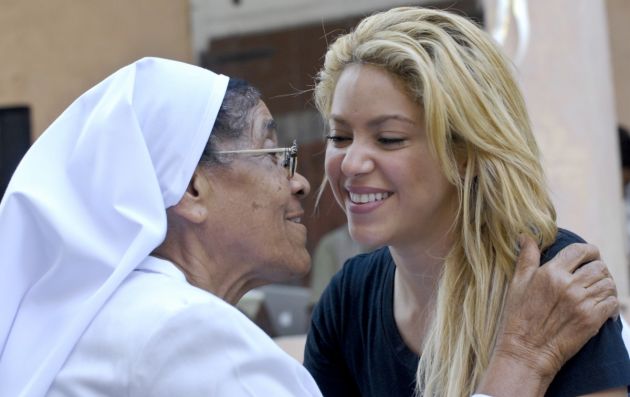'One of Us' impacts The Voice contestants, those who question

Sarah Simmons, like many other contestants preparing for The Voice auditions, didn't know what to expect and hoped for the best when she went in front of Shakira, Usher, Adam Levine, and Blake Shelton.
There were some definites for the 22-year-old music student from Memphis, Tenn.
She knew she would be going into the NBC competition with the backstory of a broken home plagued by substance abuse.
She knew she would enter the competition having overcome that part of her life, her father being three years sober.
She also knew that she would be singing "One of Us," the popular 90s song by Joan Osborne.
"This song means a lot to me," she said in her voiceover before taking the stage. "I'm so grateful to sing it with my dad around."
After belting the song, she found herself in front of four turned chairs.
Ultimately, she chose Adam, an interesting déjà vu for fans.
Two seasons prior, Adam chose Katrina Parker for his team after she sang the same song. But, why has the song resonated?
"One of Us" was a hit when it cemented its place in U.S. pop music in 1995.
In January 1996, Osborne's song cracked the top 10 of the U.S. Billboard Hot 100 chart, peaking at number four.
That year, the song was nominated for Best Female Pop Vocal Performance, Record of the Year, and Song of the Year at the Grammys.
Since, it has been covered by many artists including Prince and has featured on other television shows such as Glee and Joan of Arcadia.
In a review of Relish, the album featuring "One of Us," critic Roch Parisien said, "['One of Us' is] a simple, direct statement of faith, honest and unadorned, one framed in a near-perfect chorus and delectable Neil Young-ish guitar riff. This isn't one of those sugary, superficial, goody-two-shoes Amy Grant kind of deals."
The song questions the Christian faith, more than it tries to defend it.
It doesn't, however, attempt to debunk it.
The song is written as a series of simple questions that anthropomorphize God.
It begs the question that if God existed as a regular John Doe, would people act differently. Would he be treated as just another person, or would his physical manifestation convert nonbelievers to believe in him? Is seeing believing?
In a recent Rolling Stone interview, Marcus Mumford, of the band Mumford and Sons, discussed the role of faith in the band's music.
Though the son of John and Eleanor Mumford, the national leaders of Vineyard Church, Mumford wouldn't categorize himself or his music as Christian.
"I wouldn't call myself a Christian. I think the word just conjures up all these religious images that I don't really like. I have my personal views about the person of Jesus and who he was," he said in the interview. "I've kind of separated myself from the culture of Christianity."
He would discuss his spiritual journey is a "work in progress" and doesn't doubt the existence of God.
Though he still believes in God, Mumford is still growing in his faith, a process different for everyone and that sometimes includes questions involving God.
Osborne has a similar story that may have contributed to the writing of "One of Us."
Osborne grew up Catholic. During her time in the church, she was drawn to the spirituality and ritual she saw but, as she grew up, didn't side with its politics.
Since she currently considers herself a Buddhist, it's a stretch to consider the song was written for evangelical purposes.
But, the song can be attributed to the point of someone's life where faith is questioned. Often times, music is not written to be statements of truth as much as it is written as a snapshot of someone's life, a journal entry of someone's faith journey.
When considering this, it's interesting to see the correlation between "One of Us" and the emotional rollercoaster that the contestants of The Voice have been through, an emotional rollercoaster that could have tested their faith and belief.
A rollercoaster viewers have hopped on once or a few times in their lives.